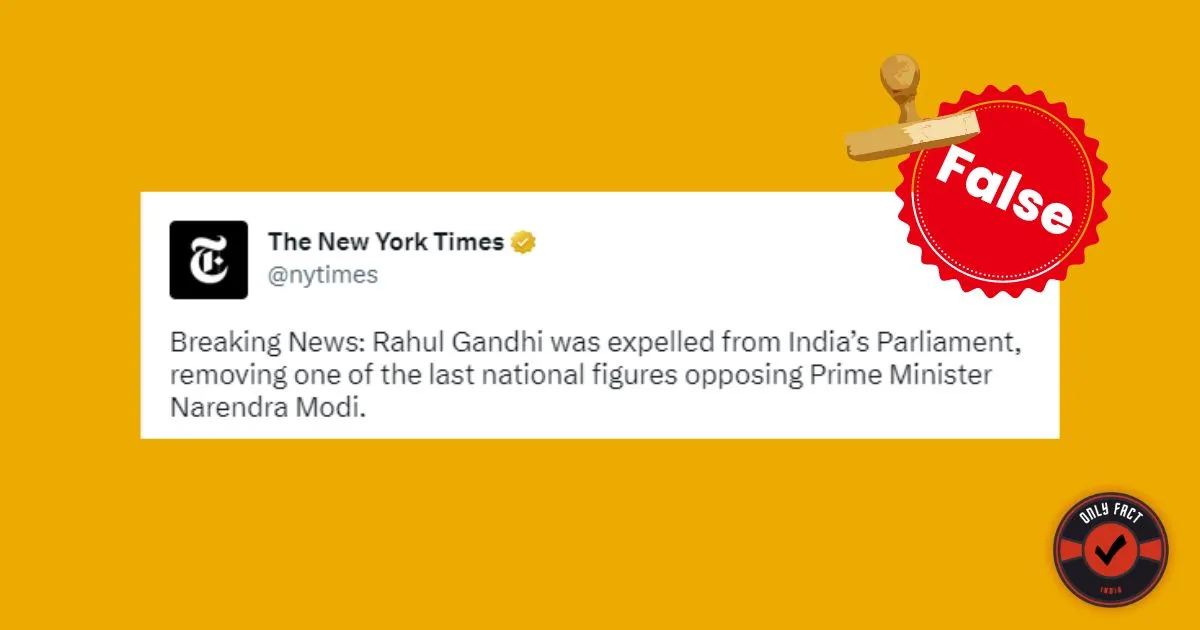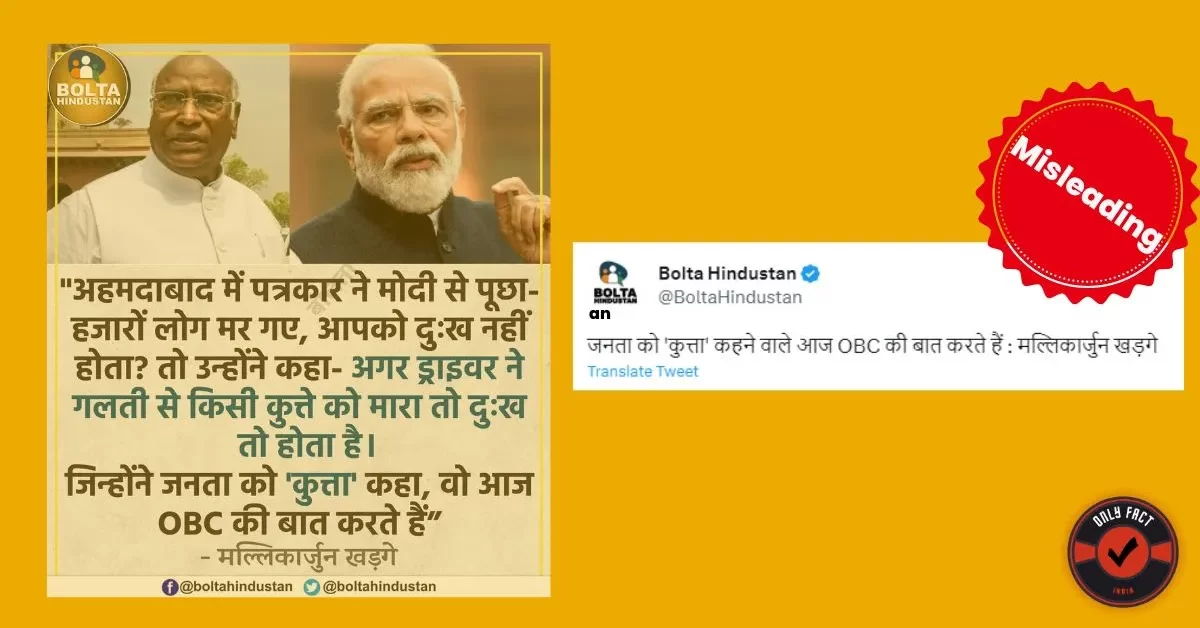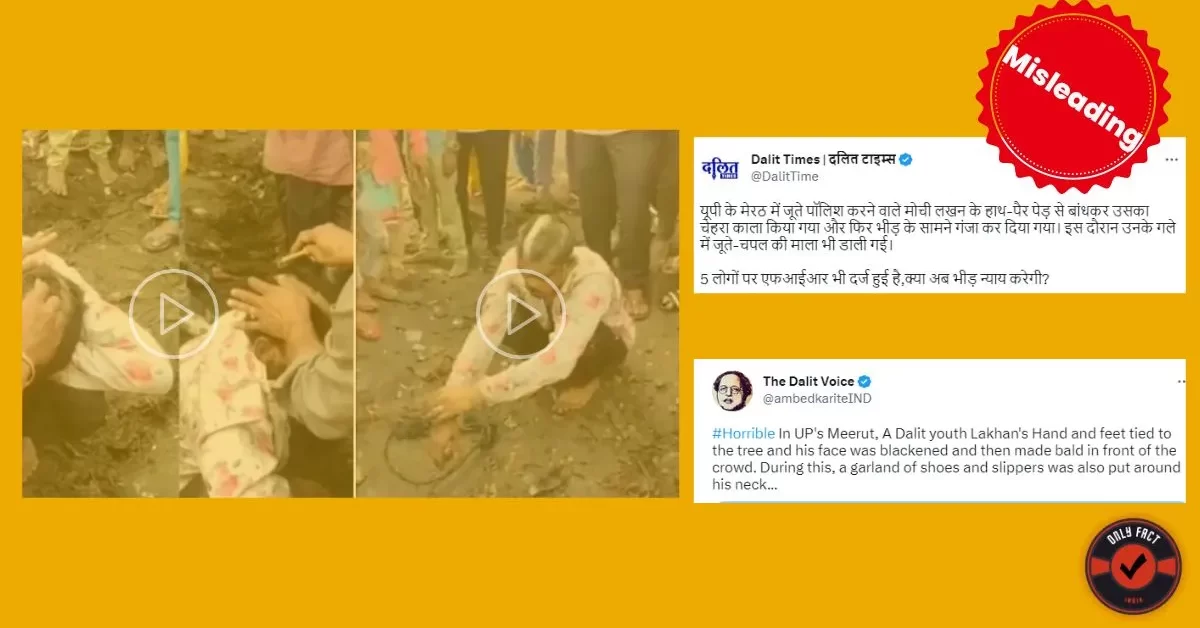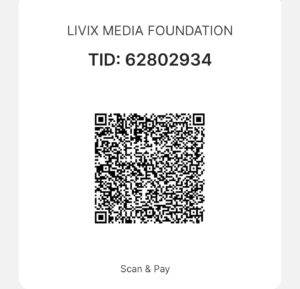On March 23, 2023, the Surat district court delivered a verdict that shook India’s political landscape, sentencing Congress leader Rahul Gandhi to two years in prison and a fine of Rs. 15,000 in a criminal defamation case. This development led to him losing his Parliament seat as well, marking a significant blow to India’s opposition.
However, an article published by the Anti-India news portal The New York Times on March 24, 2023, garnered attention for its headline that read, “Leader of India’s opposition to Modi is expelled from parliament.” Moreover, the official Twitter handle of The New York Times while quoting its article went on to further state that Rahul Gandhi’s expulsion removed one of the last national figures opposing Prime Minister Narendra Modi.
Furthermore, New York Times opinion columnist named Lydia Polgreen while quoting the New York Times report on Rahul Gandhi wrote, India had been losing its democracy slowly. Now it’s happening all at once. This is a classic move in the elected autocrat playbook: use a pliant justice system to make your most powerful opponents ineligible to run against you.
Clearly, Both New York Times and Lydia Polgreen are trying to convey that it is the Indian government that played a part in convicting Rahul Gandhi to 2 years in prison and stripping him of his membership from the parliament through the Pliant justice system.
Apart from this other Anti-India news portals like WSJ, TIME, and The Washington Post also claimed that Rahul Gandhi was expelled from the Parliament.
So, are these claims true? Let’s Fact Check.
Also Read: Railway bridge viral video is from China, not India
Fact Check
To understand the background of the case, we dug deeper into the incident that led to the conviction of Congress leader Rahul Gandhi by the Surat district court. The complaint against him was filed by BJP MLA and former Gujarat minister Purnesh Modi, who accused Gandhi of making derogatory remarks during a rally in Kolar, Karnataka, ahead of the 2019 Lok Sabha elections. The charges were filed under sections 499 and 500 of the Indian Penal Code, which deal with criminal defamation. Gandhi’s statement during the rally went as follows: “Why all the thieves, be it Nirav Modi, Lalit Modi or Narendra Modi, have Modi in their names.”
Was Rahul Gandhi convicted unconstitutionally?
The answer to this is no, not true. As per Article 102(1)(e) of the Indian Constitution, a person can be disqualified from being a member of either house of Parliament if they are so disqualified by any law made by Parliament. The relevant law in this case is Section 8 of the Representation of the People Act, 1951, which disqualifies representatives on conviction. As per Section 8(3) of the Act, a person who is convicted of an offense and sentenced to at least two years of imprisonment will attract disqualification.
Therefore, Rahul Gandhi’s conviction under the Indian Penal Code and his two-year imprisonment would trigger the disqualification provision under the Representation of the People Act. The period of disqualification, as per the Act, is six years from the date of the convict’s release from prison. Thus, Rahul Gandhi’s conviction could lead to his disqualification from the parliament.
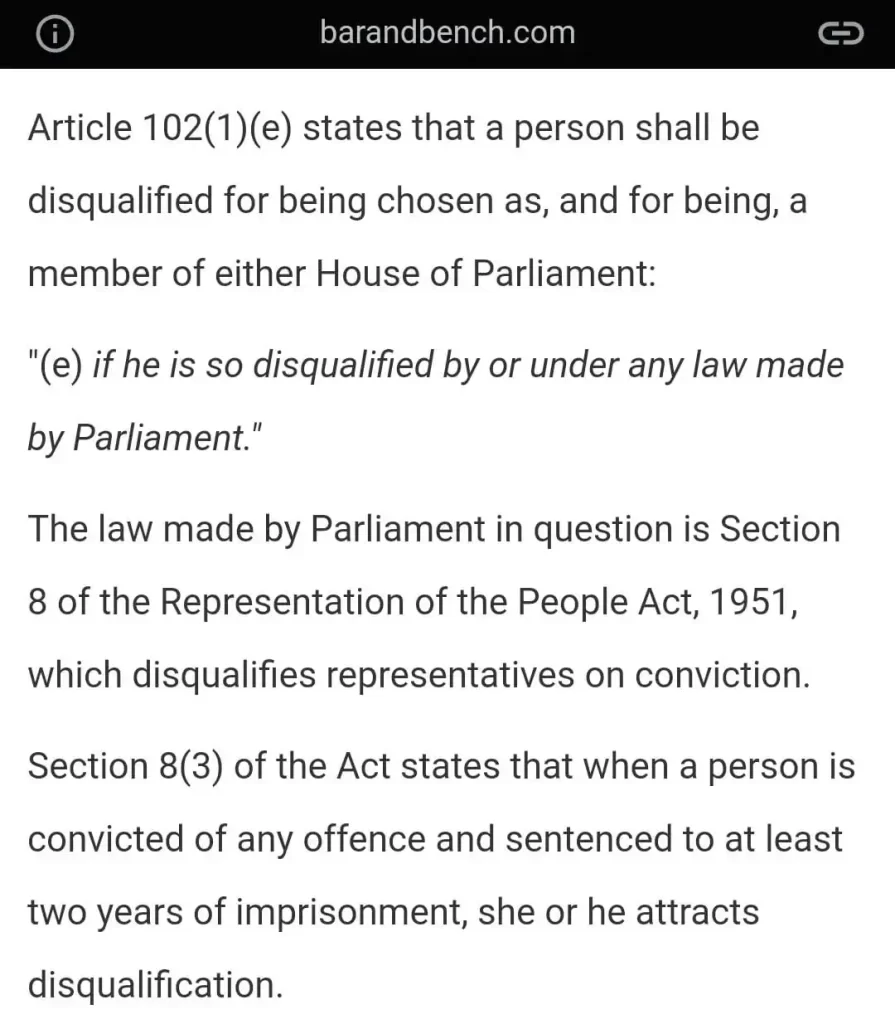
However, despite being sentenced to two years in prison and a fine of Rs. 15,000, Rahul Gandhi’s request has resulted in the suspension of his sentence and the granting of bail. This means that Rahul Gandhi can file an appeal against his conviction within 30 days while remaining free. The suspension of his sentence and grant of bail provides Gandhi with an opportunity to fight his case further and appeal against the verdict in a higher court.
Is Rahul Gandhi the first one to get disqualified from the parliament?
The answer to this is also a No. Rahul Gandhi is not the first one to get disqualified from the parliament of India.
Here is the list of all the politicians who were disqualified after conviction
- Lalu Prasad – RJD Leader (Convicted in fodder scam) was disqualified from Lok Sabha in 2019.
- J Jayalalithaa – AIADMK supremo J Jayalalithaa (Convicted in disproportionate assets case) was disqualified from the Tamil Nadu assembly in September 2014.
- Azam Khan – SP leader Azam Khan (Convicted in hate speech case) was disqualified from the UP assembly in October 2022.
- Vikram Singh Saini – BJP MLA Vikram Singh (Convicted in the Muzaffarnagar riots) was disqualified from the UP assembly in 2022.
- Kuldeep Singh Sengar – BJP MLA Kuldeep Sengar (Convicted in a Rape case) was disqualified from the UP Assembly in 2020.
Was Rahul Gandhi Expelled from the Parliament?
Anti-India news portals like The New York Times, TIME, WSJ, and The Washington Post claimed that Rahul Gandhi was expelled from India’s Parliament, which is not true. Rahul Gandhi was not expelled but disqualified as per Indian Law for his racist comments against a particular caste. The New York Times also claimed in their article that Rahul Gandhi was the leader of India’s opposition which is also not true. The leader of the opposition in India is Mallikarjun Kharge and not Rahul Gandhi.
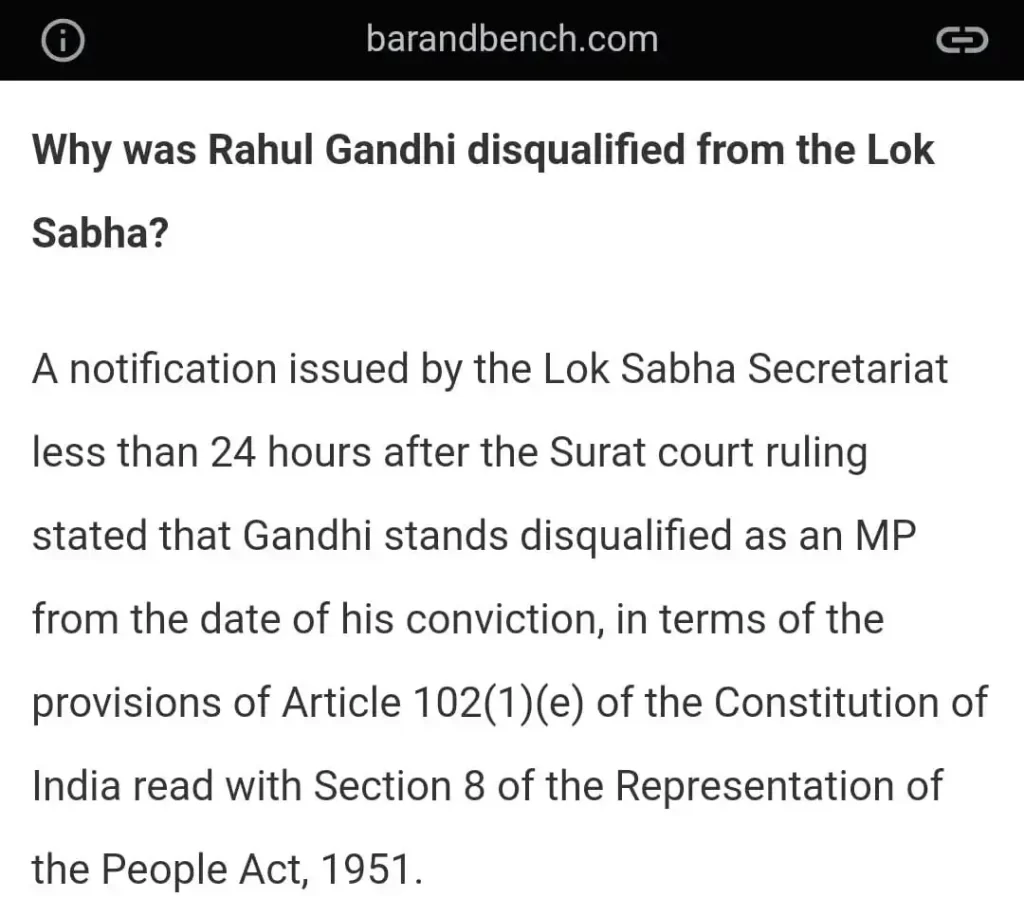
So, it is clear from the facts that nothing unconstitutional happened in Rahul Gandhi’s conviction by the Surat district court. As per the Representation of the People Act, 1951, a person convicted of an offense and sentenced to at least two years of imprisonment is disqualified from being a member of Parliament. Rahul Gandhi’s conviction falls under this category, and as a result, he may face disqualification from the Parliament.
It’s important to note that Rahul Gandhi is not the first politician to be disqualified from Parliament. In the past, BJP leaders like Vikram Singh Saini and Kuldeep Singh Sengar have also faced disqualification upon conviction. The law applies equally to all, and therefore, Rahul Gandhi’s case is not an exception.
| Claim | Indian Government played a part in convicting and disqualifying Rahul Gandhi from the parliament through the Pliant justice system |
| Claimed by | The New York Times and Lydia Polgreen |
| Fact Check | False and Misleading |
Also Read: No, the collapsing building picture is not from Kupwara, Kashmir but from Turkey
The goal of the Only Fact Team is to provide authentic news facts and debunk lies to safeguard readers’ interests.
Dear Readers, we are working to debunk fake news which is against India. We don’t have corporate funding like others. Your small support will help us grow further.
Jai Hind!

